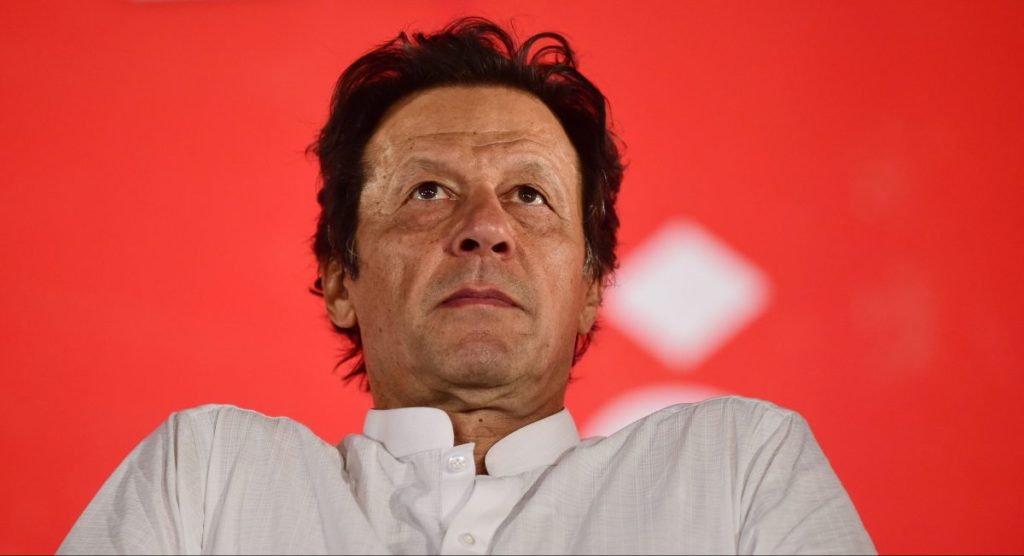Money, honour, hope – Why Donald Trump’s US & Imran Khan’s Pakistan are having an open spat
By Husain Haqqani
The exchange of tough messages over the last few days on Twitter between American president Donald Trump and Pakistani Prime Minister Imran Khan created news but was nothing new. Trump accused Pakistan of not doing “a damn thing for us” and Khan replied with a list of costs incurred by Pakistan on behalf of the United States.
Leaders of the two countries have been having similar arguments since 1965, when the US suspended military supplies to Pakistan during its war with India.
Three American presidents — Dwight D. Eisenhower, John F. Kennedy, and Lyndon B. Johnson — have asked the question: What do we get from aiding Pakistan? Five — Jimmy Carter, George H.W. Bush, Bill Clinton, George W. Bush, and Barack Obama — have wondered aloud about whether Pakistan’s leaders can be trusted to keep their word.
Pakistan had retorted then that the ungrateful Americans had hurt Pakistan in the middle of a war even though Pakistan took risks in helping the Americans spy on the Soviet Union. Americans argued that they had paid Pakistan for its services with good money and Pakistan had violated the terms under which it acquired US weapons by initiating war with India.
The argument about who wronged whom has taken many twists and turns but its nature has changed little. The bottom line is that the US-Pakistan relationship has been transactional and both sides periodically disagree on the terms of their transaction.
Over the last two decades, US-Pakistan relations have often been described as America’s most difficult external relationship. Although the two countries have been nominal allies dating back to Pakistan’s independence in 1947, their relationship has never been free of friction.
Even in its heyday in the 1950s and 1960s – when Pakistan was described as America’s “most allied ally in Asia”– the US-Pakistan partnership was far from an alliance based on shared values and interests; instead, each of the two partners was always preoccupied with confronting different enemies and pinning different expectations to their association.
Pakistan’s motive in pursuing an alliance with the United States was its quest for security against its much larger neighbour, India. Pakistan has repeatedly turned to the United States as its most significant source of expensive weapons and economic aid.
Although, in the hope of winning US support for Pakistan’s regional aims, Pakistani leaders have assured US officials that they share the United States’ global security concerns. Pakistan has been repeatedly disappointed because the United States does not share Pakistan’s fears of Indian hegemony in South Asia.
For its part, the United States has also chased a mirage when it has assumed that, over time, its assistance to Pakistan would engender a sense of security among Pakistanis, thereby leading to a change in Pakistan’s priorities and objectives.
The United States initially poured money and arms into Pakistan in the hope of building a major fighting force, which could assist in defending Asia against Communism. Pakistan repeatedly failed to live up to its promises to provide troops for any of the wars the United States fought against Communist forces, instead using American weapons in its conflict with India.
Furthermore, the US hopes of persuading Pakistan to give up or curtail its nuclear weapons programme or to stop using Jihadi militants as proxies in regional conflicts have similarly proved futile.
Meanwhile, in Pakistan, successive governments have spent a lot of time trying to figure out how to maintain Pakistan’s freedom of action while depending on American aid. But neither country has changed its core policies nor have they given up the hope that the other will change.
Both sides have their own narrative, making it a tale of exaggerated expectations, broken promises, and disastrous misunderstandings.
President Trump might be incorrect in saying that Pakistan has not done anything for the US because over the decades, Pakistan has helped the United States with some of its policy objectives. He is right in noting that Pakistan has offered tactical cooperation in return for aid, while at the same time undermining strategic objectives of the US.
As I have already told PTI, Pakistani leaders, too, are being disingenuous in describing the US as ‘ungrateful’. Americans have provided over $43 billion in military and economic assistance since 1954, helped build Pakistan’s conventional military capability, and bailed Pakistan out of several economic and political crises.
The U.S. has also ignored or treaded lightly with Pakistan over actions that have resulted in strenuous sanctions for other countries. Pakistan’s open support for Jihadi terrorist groups has not resulted in it being labelled a “state sponsor of terrorism” and its pursuit and acquisition of nuclear weapons has been treated differently than, say, Iran or North Korea.
In the process of seeking transactional advantages, both countries have incurred strategic costs. The Americans have been mired in the long-drawn conflict in Afghanistan because of the unrealistic assumption that economic and military assistance would somehow help Pakistan root out its proxies in Afghanistan – the Afghan Taliban.
Pakistan, on the other hand, has had to pretend to be a US ally even in Afghanistan even though its self-defined national interest there did not coincide with the American objectives. This led to the “deceit and lies” that Trump complains about as well as the “costs to Pakistan” that are at the heart of Imran Khan’s grievance.
Trump and many Americans now recognise that an alliance cannot endure amidst a fundamental divergence of interests. Khan’s assertion that “Pak[istan] has suffered enough fighting US’s war. Now we will do what is best for our people and our interests,” reflects Pakistani sentiment. Although it begs the question why successive Pakistani governments have agreed to be an American ally if the alliance did not serve Pakistan’s interests?
It is difficult to recall another country that says that it acted against its own interests for the sake of an ally like Pakistan does or one that demands recompense for losses it incurred. In any case, few outside Pakistan buy into the mantra of “We did it for the US even though it resulted in the killing of our own people and huge losses to our economy”.
Pakistan’s narrative is said to be about national honour, which gets hurt by any negative remark by an American leader, but Pakistan’s policy has always been pragmatic.
Pakistan’s perennial need for aid and loans, as well as military material, was the basis of its elite’s pursuit of an alliance relationship with the United States. As long as that need persists, Islamabad would continue to be tempted to go back to old transactional patterns.
It is the Americans who are less likely to return to what I describe in my book as ‘magnificent delusions’. Not only do Pakistan’s ambitions in Afghanistan conflict with US plans, but the two countries strongly disagree about China’s expanding influence in Asia.
Only a strategic rethink on the part of Pakistan can lead to a reset in US-Pakistan ties. Until then, occasional Twitter spats and “we paid a heavy price for being your ally” statements will continue to characterise this unusual relationship.
♣
Husain Haqqani, director for South and Central Asia at the Hudson Institute in Washington D.C., was Pakistan’s ambassador to the United States from 2008-11. His latest book is ‘Reimagining Pakistan’.
























